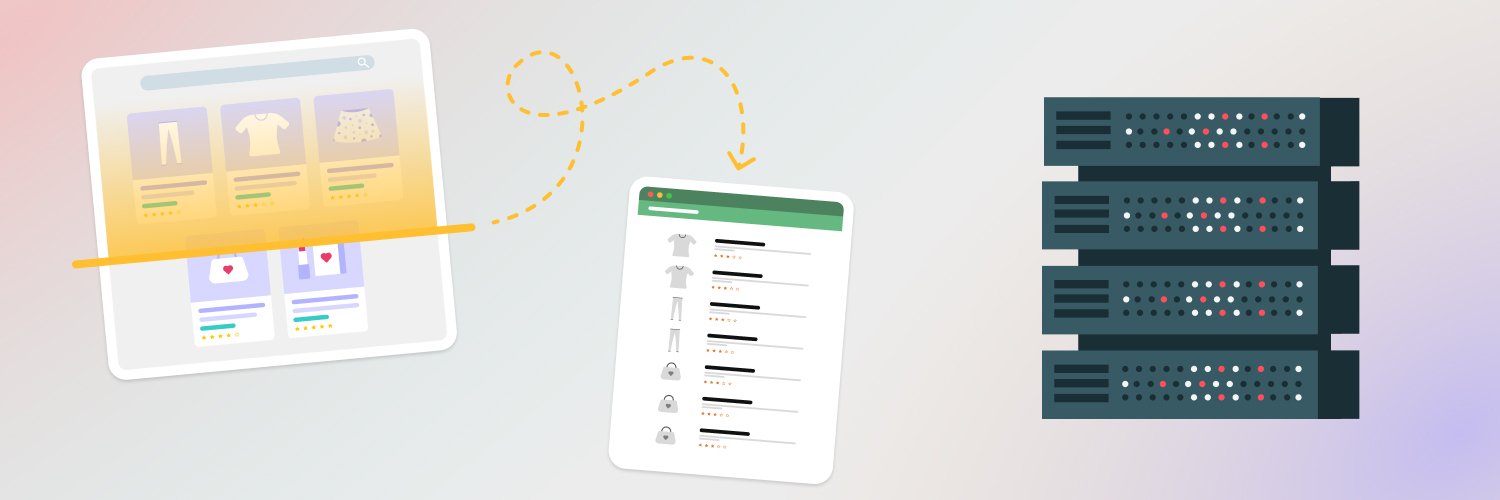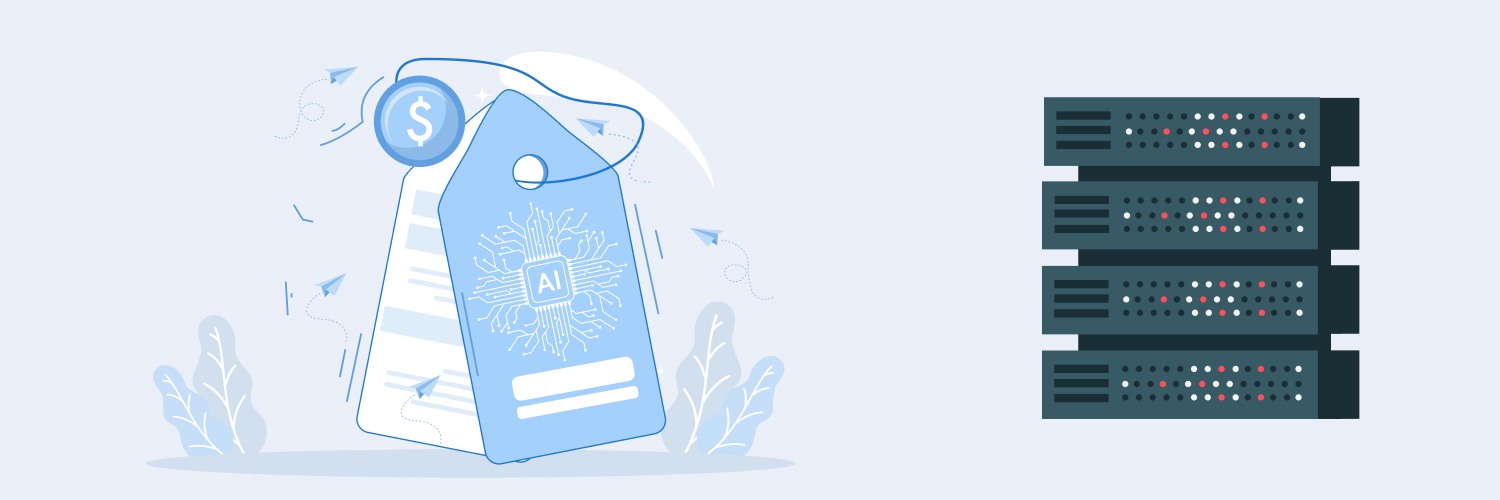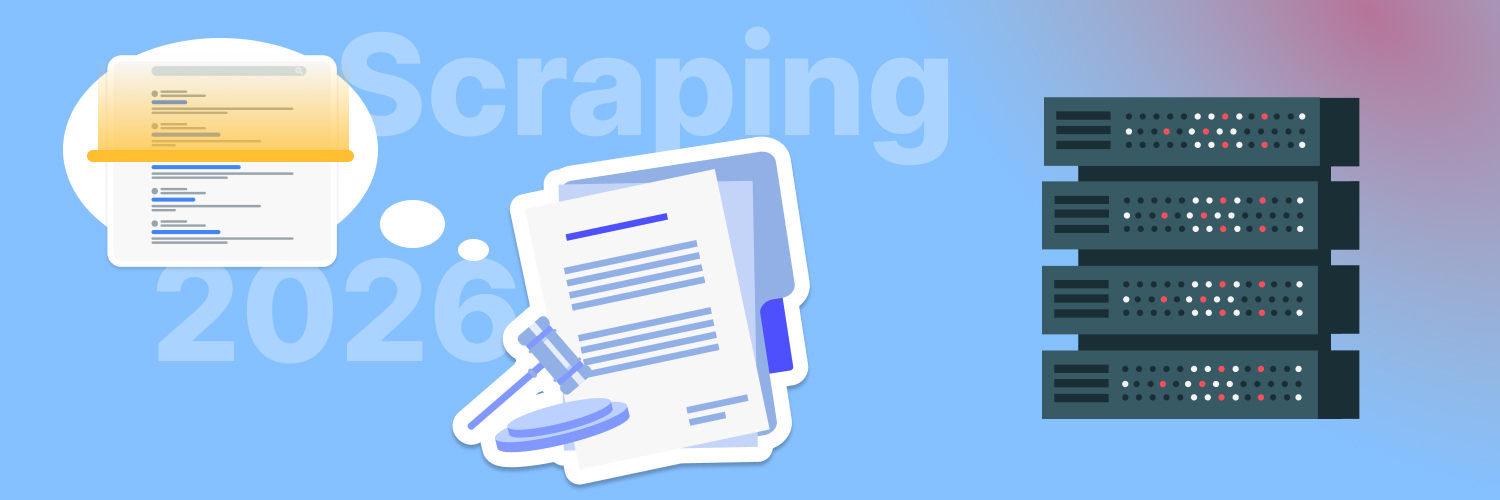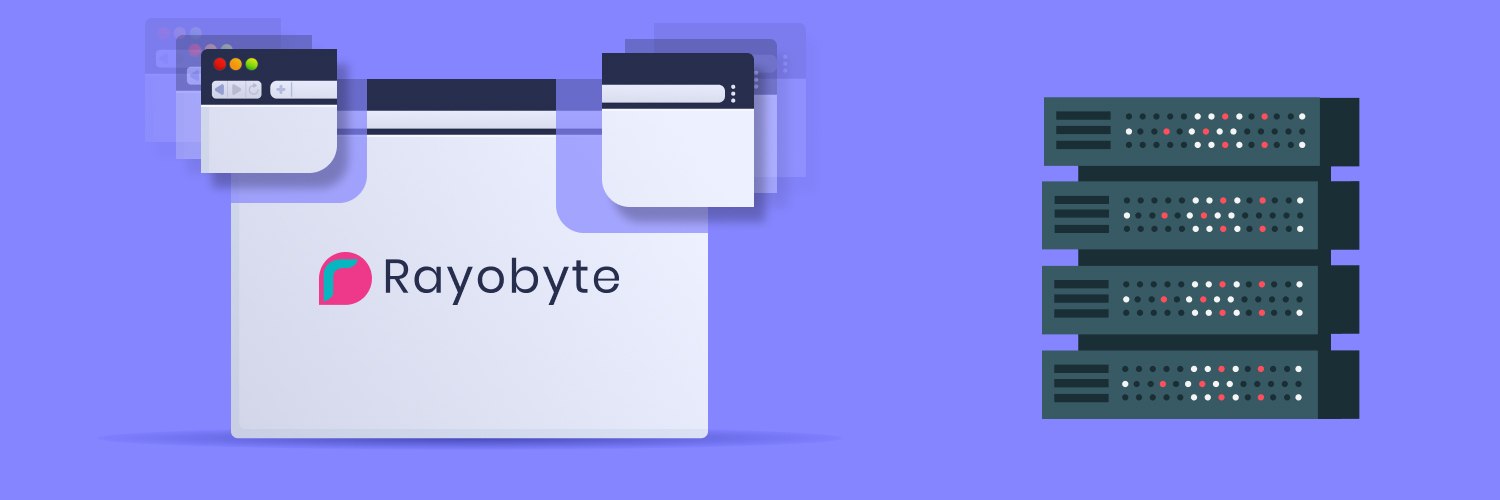Debunking Myth That Mobile Proxies Are Too Expensive
When businesses first hear about mobile proxies, one of the most common reactions is: “Aren’t those too expensive?” This is a common myth that often leads to misunderstandings about their true value.
There are many common myths about mobile proxies and their pricing, including the belief that they are always prohibitively expensive or overly complex to use. The myths surrounding mobile proxies, especially regarding their cost and complexity, can prevent businesses from making informed decisions.
In this article, we’ll focus on debunking common myths, specifically the myth that mobile proxies are too expensive, explain what drives their pricing, and show why they’re often the most cost-effective option for businesses that rely on stable, undetectable connections for data collection, social media management, and other automation tasks.
Exclusive Webinar Access
Learn how to collect data without bans, plus get 500GB for $250 in our pilot program.

What Mobile Proxies Really Are
A mobile proxy is an IP address assigned by a mobile carrier; specifically, these are IP addresses assigned to smartphones or connected devices by mobile network providers. When your traffic passes through a mobile proxy, it looks to websites as if it’s coming from a legitimate mobile user, not from a data center or automated system.
This is what makes mobile proxies so powerful. Because the traffic routes through real mobile networks, websites’ security systems see your requests as authentic, human-like activity.
A few technical details to keep in mind:
- Mobile proxies rely on SIM cards and carrier data connections, which are inherently more expensive to maintain than broadband lines.
- They use rotating IPs from shared pools. Multiple users share the same mobile IP addresses, which boosts anonymity and makes detection nearly impossible.
- The IPs are assigned dynamically by the carrier, so every time the device reconnects, it can receive a new IP.
This rotation and legitimacy create an environment that’s extremely difficult for websites to block, which is exactly why many businesses now see mobile proxies as a necessity, not a luxury.
Understanding IP Addresses and Mobile IPs
When it comes to proxies, not all IP addresses are created equal. Mobile IPs are unique because they’re assigned directly by mobile carriers like AT&T, Vodafone, or T-Mobile to smartphones and other connected devices. When you use a mobile proxy, your internet traffic is routed through one of these carrier-assigned IP addresses, making your activity appear as if it’s coming from a real mobile user.
This is a big difference from datacenter or even residential proxies. While residential proxies use IP addresses tied to home internet connections, mobile proxies provide IPs that are constantly in use by real devices on real mobile networks. These mobile IPs are often shared among many users, which increases anonymity and makes it much harder for websites to detect or block your activity.
Because websites see your traffic as coming from a legitimate mobile carrier, mobile proxies offer a higher level of trust and reliability. This means fewer blocks, more successful requests, and a smoother experience for any business relying on proxies for automation, scraping, or managing multiple accounts. In short, mobile proxies provide the authenticity and security that other proxy types simply can’t match.
Why the “Too Expensive” Myth Exists
The perception that mobile proxies are too expensive usually comes from comparing them directly to datacenter proxies, which are the cheapest option on the market.
Datacenter proxies are hosted on virtual machines in large server farms. They’re fast and low-cost, but they all share one fatal flaw: they’re easily detected. Many websites automatically flag or block datacenter IPs because they’re not tied to any legitimate user or internet service provider.
Residential proxies come next. They use IPs assigned to home networks, making them more trustworthy than datacenter proxies. However, residential IPs have notable limitations for large-scale social media management, e-commerce tracking, and ad verification, as they are increasingly easier to detect and restrict compared to mobile proxies.
Mobile proxies, by contrast, rely on real devices connected to real mobile carriers, which is why they’re trusted by virtually every platform. That trust and authenticity come with infrastructure costs: maintaining SIM cards, ensuring global coverage, and handling carrier data management.
In short:
- Datacenter = cheapest, least trusted
- Residential = mid-range, moderately trusted
- Mobile = premium, highly trusted
The cost of mobile proxies reflects the real-world resources behind them, but that doesn’t mean they’re too expensive.
The True Cost of Not Using Mobile Proxies
When you rely on datacenter or even residential proxies for sensitive or large-scale operations, the cost of getting blocked can outweigh any savings.
For example, a business trying to verify ads in different regions or running multiple social media campaigns can face significant setbacks if their proxies are detected and blocked.
Think about these scenarios:
- Social media management: Running multiple accounts is a key challenge, as managing several social media accounts from the same IP often triggers account bans or suspicious activity flags. Mobile proxies solve that by using real mobile IPs that mimic real human behavior.
- E-commerce and ad verification: Monitoring competitors or checking localized ad campaigns requires appearing as a local user. Mobile proxies provide geo-authenticity, ensuring your ad verification or market research isn’t skewed by detection filters.
- Web scraping: If your scrapers are blocked mid-run, you lose valuable data and time. Mobile proxies can bypass IP-based restrictions and reduce CAPTCHA interruptions, leading to far more efficient scraping data operations.
When you add up the costs of failed requests, lost accounts, and wasted hours, a slightly higher proxy bill looks pretty small in comparison.
Understanding What You’re Paying For
This is where most misunderstandings come from: people assume mobile proxies are expensive because they’re comparing the price per IP, not the value per result.
Let’s break down what’s actually behind the cost of mobile proxies:
- Real mobile networks – Each connection runs through an active SIM card on a genuine carrier network. That carrier data access comes with operational fees.
- IP rotation systems – Providers build complex infrastructure that automatically rotates IPs at safe intervals to mimic natural mobile usage.
- Hardware and maintenance – Real devices (phones, modems, or dongles) need to be managed, updated, and monitored for uptime. While some advanced setups may require extensive knowledge, most providers offer user-friendly solutions that simplify the process for typical users.
- Ethical sourcing – Legitimate providers source their mobile IPs through transparent, compliant channels — not from hacked or unauthorized devices.
- Responsive support – Premium proxy providers invest in 24/7 technical support, usage dashboards, and monitoring to ensure reliability.
These factors make mobile proxies an end-to-end infrastructure for reliable, secure, and compliant traffic routing.
Why Mobile Proxies Are More Cost-Effective Than You Think
When you factor in performance, reliability, and risk reduction, mobile proxies often turn out to be the most cost-effective option overall.
Here’s why:
- Fewer bans mean fewer losses: Each block or restriction can disrupt your workflow. Mobile proxies drastically lower that risk, so you don’t have to keep replacing accounts or rerunning failed scrapes.
- Better success rates per request: Whether scraping data, verifying ads, or running multiple social media accounts, higher trust scores lead to fewer retries, and less wasted bandwidth.
- No hidden fees: With a reputable provider, you pay for what you use; no surprise surcharges or “extra port” charges that cheap proxy services often hide in the fine print.
- Scalability without risk: Need to manage thousands of connections? Mobile proxies handle scale naturally through shared pools and rotating IPs.
You might pay more per GB or per port, but the ROI per successful operation can easily justify the difference.
Comparing Mobile Proxies to Other Proxy Types
| Proxy Type | Typical Cost | Trust Level | Detection Risk | Ideal Use Cases |
| Datacenter | Low | Low | High | Bulk scraping, non-sensitive data |
| Residential | Medium | Moderate | Medium | Market research, localized browsing |
| Mobile | High | Very High | Very Low | Social media, ad verification, automation, high-risk scraping |
Mobile proxies aren’t meant to replace every other type, they’re designed for use cases where trust and authenticity matter most.
Websites often use advanced detection systems to identify and block datacenter and residential proxies by analyzing IP reputation, blacklists, and fingerprinting, but mobile proxies are much harder for a website to detect or block due to their association with real mobile carriers and constantly rotating IPs.
If you’re running lightweight scraping or non-sensitive automation, datacenter proxies may be fine. But if you’re operating at scale, dealing with aggressive detection systems, or managing valuable accounts, mobile proxies provide the reliability that cheaper options can’t match.
Exclusive Webinar Access
Learn how to collect data without bans, plus get 500GB for $250 in our pilot program.

Connection Speed and Performance
A common concern with any proxy is whether it will slow down your connection. The good news is that high-quality mobile proxies, especially those operating on real 4G or 5G networks, are designed to minimize any impact on connection speed. In fact, premium proxies can sometimes even improve your experience by caching frequently accessed data and optimizing how information is transferred.
Of course, the actual connection speed you experience can depend on several factors, including the distance between you and the proxy server, the quality of the mobile network, and the technology your provider uses. That’s why it’s important to choose the right provide; one that invests in robust infrastructure and offers premium proxies with high bandwidth and low latency.
With the right mobile proxy provider, you can enjoy fast, reliable internet traffic routing that supports your business needs, whether you’re scraping data, managing multiple accounts, or running localized ad campaigns. Instead of slowing you down, mobile proxies can actually help you move faster and more efficiently online.
Hidden Costs of Cheap Proxies
Another angle worth considering: low-cost proxy solutions can carry hidden fees and risks that make them more expensive over time. When evaluating proxy providers, watch out for red flags such as suspiciously low prices, lack of transparency, poor customer reviews, or unclear IP sourcing.
Cheap or free proxies often:
- Use stolen or compromised IPs (risking your security and reputation).
- Have slow connection speeds due to overcrowded servers.
- Offer no responsive support if something breaks.
- Trigger CAPTCHAs, suspicious activity alerts, or even DDoS attacks due to shared abuse.
Premium proxies — especially mobile ones — give you clean, high-trust IPs with consistent performance and full transparency. That’s worth far more than saving a few dollars upfront.
How Businesses Are Using Mobile Proxies Today
Mobile proxies are becoming essential infrastructure across industries.
Here are a few examples:
- Social media agencies: Manage hundreds of profiles safely without triggering bans.
- E-commerce teams: Track product data and monitor competitors’ pricing strategies.
- Ad verification companies: Confirm how localized ad campaigns appear to real users in different regions.
- Market research firms: Access region-specific websites and content that would otherwise be blocked.
- Cybersecurity teams: Simulate real internet users to test security systems or assess threat surfaces without exposure.
For these use cases, the cost of reliability is far less than the cost of failure.
Avoiding Detection with Mobile Proxies
One of the biggest advantages of mobile proxies is their ability to avoid detection. Because mobile IPs are assigned to real devices and used by actual mobile users, they closely mimic real human behavior online. This makes it extremely difficult for websites to distinguish between genuine users and automated activity routed through a mobile proxy.
Mobile proxies often use rotating IPs, which means your connection is assigned a fresh IP address at regular intervals or on demand. This rotation not only enhances your anonymity but also helps you bypass geo-blocks and IP-based restrictions without sacrificing performance. Compared to residential proxies or datacenter proxies, mobile proxies are far less likely to trigger CAPTCHAs, account bans, or suspicious activity alerts.
To maximize these benefits, it’s crucial to work with a reputable provider that uses real devices and genuine mobile IPs. Scalable, high-bandwidth plans ensure you can run your operations smoothly, whether you’re scraping data, managing multiple social media accounts, or accessing region-specific content. With mobile proxies, you get the security and efficiency needed to stay ahead of detection systems.
Tips for Choosing the Right Provider
If you’re considering adding mobile proxies to your workflow, make sure you’re choosing a reputable provider. Here’s what to look for:
- Transparent pricing – Avoid vague “contact us for a quote” models that may hide fees.
- Ethical sourcing – Confirm that the provider uses legitimate, consent-based mobile IPs.
- Control panel and analytics – A modern dashboard makes it easy to manage ports, track usage, and rotate IPs on demand.
- Global coverage – Look for providers with IPs across specific regions relevant to your business.
- Responsive support – Fast, knowledgeable help can make a big difference when scaling operations.
These features mean that your mobile proxies not only perform well but also remain compliant, secure, and future-proof.
Future Proofing Your Operations
The world of proxies is constantly evolving, and staying ahead means choosing solutions that are built for the future. Mobile proxies are already leading the way, especially as 5G networks roll out globally, offering even better performance and lower latency for demanding business applications.
Early adopters are leveraging 5G mobile proxies for tasks that require lightning-fast response times, such as real-time automation and large-scale data collection. At the same time, platforms are getting smarter, using AI-powered detection systems to spot automated behavior. Mobile proxies provide the authentic, carrier-assigned IPs needed to evade these advanced detection methods.
With data privacy laws becoming stricter around the world, it’s more important than ever to use proxies that are sourced ethically and comply with regulations. Investing in legitimate mobile proxy infrastructure not only protects your business from legal risks but also ensures you can scale and adapt as the market changes.
By choosing high-quality mobile proxies, you’re future-proofing your operations—minimizing the risk of bans, supporting sustainable growth, and staying compliant in an increasingly complex digital landscape.
The Bottom Line: Value Beats Price
When you look beyond the headline cost, mobile proxies provide exceptional value:
- They’re tied to real devices and mobile carriers, giving you complete anonymity and authenticity.
- They significantly reduce account bans, IP-based blocks, and suspicious activity flags.
- They deliver consistent, trusted performance for modern business applications — from web scraping and ad verification to social media management and market research.
So, are mobile proxies more expensive than other proxy types? Yes, on paper. But when you factor in what they save you in downtime, detection, and lost opportunities, they’re a cost-effective investment in your business’s success.
Ready to See the Difference?
If bans, CAPTCHAs, and latency are slowing down your data collection, it’s time to rethink your setup.
Join us for “Struggling with Bans? Why Mobile Proxies Are Changing the Web Data Game”, an exclusive live webinar hosted by Rayobyte.
November 21, 2pm GMT
Speaker: Neil Emeigh, CEO of Rayobyte
In this 45-minute session, you’ll learn:
- Why bans and latency are escalating, and what’s really driving it.
- How mobile proxies outperform datacenter and residential options for scale, speed, and reliability.
- Best practices for ethical, compliant data collection that protects your reputation.
- Real-world examples from finance, e-commerce, and AI teams already seeing results.
You’ll also get early access to our Mobile Proxy Pilot Program: 500GB for just $250.
Don’t miss your chance to see how Rayobyte’s mobile proxies are redefining what’s possible for secure, scalable web data.
Exclusive Webinar Access
Learn how to collect data without bans, plus get 500GB for $250 in our pilot program.




